Are you a cybersecurity student searching for the best cybersecurity laptop that will meet your computing needs? With laptops becoming increasingly more powerful, it can be difficult to decide which ones offer the best features for cybersecurity students.
Fortunately, this blog post outlines several of the highest-rated laptops on the market today and provides detailed information about their specs and performance capabilities.
From budget-friendly options loaded with top-notch security tools to higher-end choices featuring advanced hardware and software components specifically designed for IT professionals, we’ll break down all of your options so you can find the perfect laptop with confidence!
Check Out Our Top 3 Recommendations
1. Acer Predator Helios 300 PH315-54-760S Laptop
2. ASUS TUF Dash 15 Laptop
3. Lenovo IdeaPad 5 15.6″ FHD IPS Touchscreen Laptop
Look Here
7 Best Laptops For Cyber Security Students
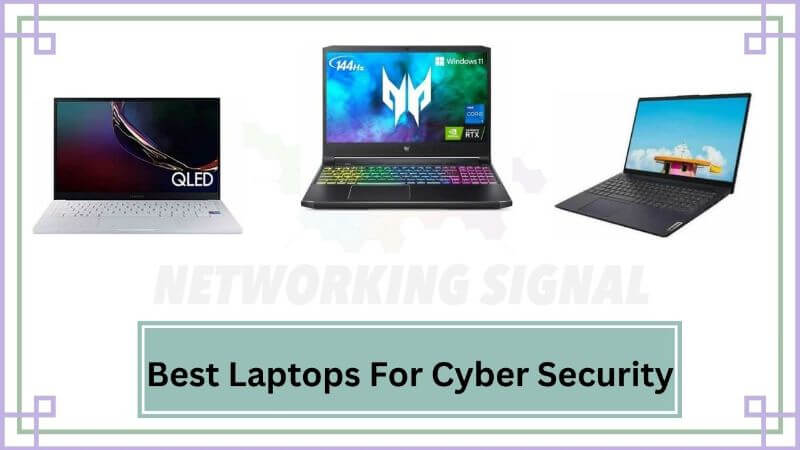
Here are the best laptops for Cyber Security students currently available in the market:
1. Lenovo IdeaPad 5 15.6″ FHD IPS Touchscreen Laptop
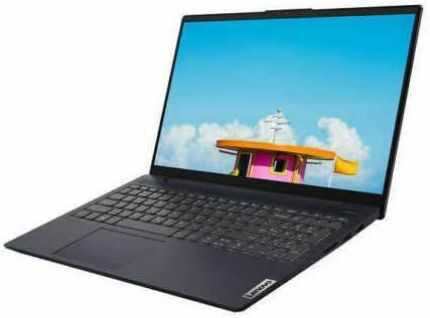
Core Specification
Hardware Specification
Tech Specification
| Screen Resolution | 1920 x 1080 |
| Display | 15.6″ FHD (1920 x 1080) IPS Touch Screen LED-Backlit Display |
| Processor | Intel i7-1165G7 Processor at 4 cores, 8 threads, 2.8GHz |
| Graphics | Integrated Intel Iris Xe Graphics |
| Operating system | Wi-Fi 802.11ax Wi-Fi 6 wireless networking, IEEE 802.11a/b/g/n |
| Hard Drive | 512GB SSD |
| Memory | 12GB DDR4 |
| Bluetooth & WiFi | Bluetooth 5.1 & Intel Wi-Fi 6 (2×2) |
| Audio | 2x 2W Speakers with Dolby Audio |
| Security Features | Fingerprint Reader |
| Price | |
Pros & Cons
| Pros | Cons |
| The keys are very responsive | Surprised there was no instruction manual or anything |
| Super fast and the touchscreen is awesome | |
| Smoothly run your video-editing applications, as well as multiple programs and browser tabs | |
| The 1920×1080 resolution boasts impressive color and clarity | |
| Appears to be well-built and durable |
2. Apple MacBook Pro
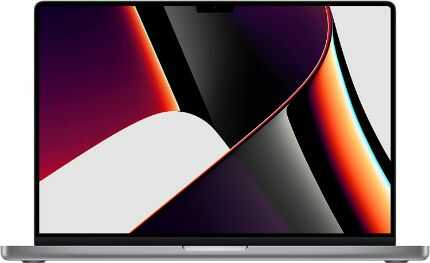
Core Specification
Hardware Specification
Tech Specification
Pros & Cons
| Pros | Cons |
| Long-lasting battery, excellent build quality, terrific trackpad | Keys are responsive enough but the letters will wear off after a year or two of daily use |
| The keyboard is pleasant to type on | |
| The sound is noticeably better than any other laptop | |
| The glorious screen is incredibly bright and vivid | |
| Doesn’t get hot or spin fans under any load |
3. Acer Predator Helios 300 PH315-54-760S Laptop

Core Specification
Hardware Specification
Tech Specification
Pros & Cons
| Pros | Cons |
| The screen quality seems top-notch in my limited testing of the unit | The power plug-in is located in the middle of the left side, a little odd |
| The button feel nice and typing on the laptop is nice and easy | |
| The computer is relatively slim and lightweight considering | |
| Decent speakers, great audio quality with headphones | |
| Powerful fans keep the laptop cool even during heavy gaming |
4. ASUS TUF Dash 15 Laptop
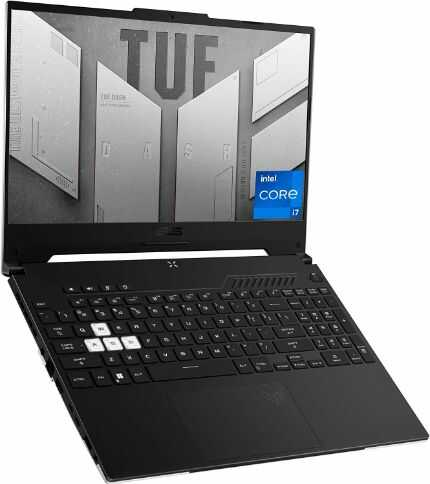
Core Specification
Hardware Specification
Tech Specification
Pros & Cons
| Pros | Cons |
| Fast & Great at multitasking | The power plug-in is located in the middle of the left side, a little odd |
| Excellent laptop for advanced business applications and handling multiple large applications | |
| Really liked the design of the laptop and the big enough touchpad | |
| The quality is pretty great, the frame rate is HIGH! Can play large games like Microsoft Flight Sim, racing Sims | |
| Very powerful laptop, good for gaming and adobe software | |
| GPU communicates directly with the display, increasing performance and decreasing latency |
5. SAMSUNG Galaxy Book Ion 13.3” Laptop
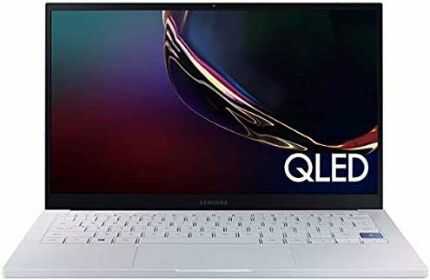
Core Specification
Hardware Specification
Tech Specification
Pros & Cons
| Pros | Cons |
| Extremely lightweight and quiet | Speakers way too low in sound because of the positioning of the speakers |
| Battery life is outstanding | |
| The processor is plenty powerful to even do video editing/rendering with 1080p source material | |
| Keys aren’t really loud when typing, and the cooling fan isn’t too loud | |
| Boots up fast and shuts down fast |
6. HP 2022 High-Performance Laptop
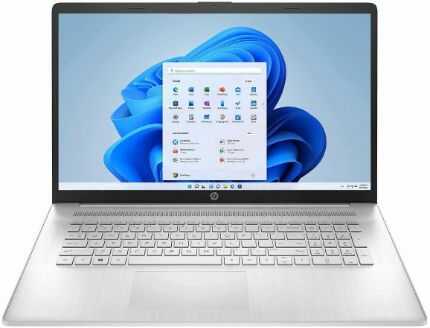
Core Specification
Hardware Specification
Tech Specification
Pros & Cons
| Pros | Cons |
| Great size, lightweight, and high speed | Speakers way too low in sound because of the positioning of the speakers |
| The computer is outstanding, it is fast, quiet, and looks great | |
| High-Performance Business Laptop | |
| Fast Charging |
7. Dell Inspiron 14 5420 14-inch Laptop
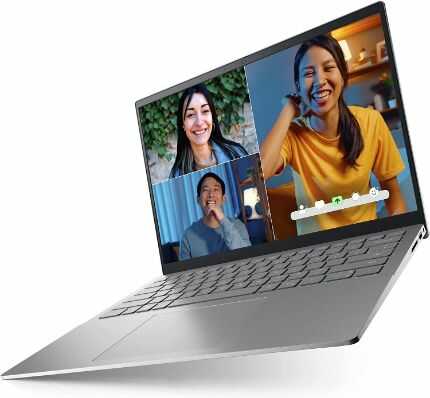
Core Specification
Hardware Specification
Tech Specification
Pros & Cons
| Pros | Cons |
| Good performance with the i7 and 16GB of RAM | The trackpad could be better |
| Fast 3.2 gen 2×2 USB C Port that supports power, 20Gbps data transfer | |
| The trackpad could be better | |
| Durable, metal on the lid and keyboard deck | |
| Above the average display, with vivid colors, good contrast ratio, and decent brightness |
What to look for when purchasing a Laptop for Cyber Security?
Here are some key factors to consider when purchasing a laptop for cyber security:
- Processor: A powerful processor is essential for running demanding security tools and applications. Make sure to check the laptop’s specs to make sure it can handle your workload.
- RAM: The more RAM a laptop has, the faster it will be able to process data and run multiple tasks simultaneously. Look for laptops with 8GB or more RAM for the best performance.
- Storage: Look for laptops that offer a combination of HDD and SSD storage. An HDD is ideal for storing large amounts of data while an SSD provides faster access times and improved performance.
- Graphics: Many security tools and applications require a dedicated graphics card to run correctly, so make sure to check the laptop’s specs to ensure it can handle any graphics-intensive tasks.
- Battery Life: The battery life will be especially important for security professionals who are constantly on the go. Look for laptops with a long battery life that can last up to 8 hours or more when fully charged.
- Portability: Depending on your needs, you may want a lightweight laptop that is easy to carry around from place to place. Look for ultra-portable laptops that offer a slim design and long battery life.
- Security Features: Security is of paramount importance when handling sensitive data. Look for laptops with built-in security features like secure encryption, biometric fingerprint scanners, TPM chips, and more.
- Price: Last but not least, make sure to set a budget and stick to it. Many great laptops on the market won’t break the bank but still offer plenty of features and performance capabilities.
Tips For Keeping Your Data Safe Online
When you are a cybersecurity student, it is important to keep your data safe online. Here are some tips for staying secure:
Use Strong Passwords: Create strong and unique passwords for all of your accounts using a combination of upper and lowercase letters, numbers, and symbols. Never share your passwords with anyone else!
Enable Two-Factor Authentication: Make sure to enable two-factor authentication for all of your online accounts. This will add an extra layer of security and protect your data from unauthorized access.
Update Software Regularly: It is important to keep all of your software up-to-date with the latest security patches and fixes. Doing so will help prevent potential cyber-attacks.
Use a Virtual Private Network (VPN): A VPN is an important tool for encrypting your online traffic and hiding your IP address from potential hackers. Make sure to use a reliable and secure VPN to keep your data safe.
Be Wary of Public Wi-Fi: Avoid using public Wi-Fi networks as they are often insecure. If you must use public Wi-Fi, make sure to connect to a secure network and avoid entering any sensitive information while online.
Back-Up Your Data: Make sure to back up your data regularly in case of an attack or system failure. Use an external hard drive or flash drive for the best results.
Frequently Asked Questions
Is a laptop for cyber security expensive?
No, there are plenty of great laptops on the market that won’t break the bank. You can find many models with powerful processors, ample RAM and storage, and long battery life at a reasonable price.
Do I need a dedicated graphics card for cyber security?
It depends on your needs and the types of tasks you will be performing. Many security tools and applications require a dedicated graphics card to run correctly, so it may be worth investing in a laptop with one if needed.
Do I need a VPN for Cyber Security?
Yes, a VPN is an important tool for encrypting your online traffic and hiding your IP address from potential hackers. Make sure to use a reliable and secure VPN to keep your data safe.
What should I look for in a laptop for Cyber Security?
When shopping for a laptop for cybersecurity, look for models with powerful processors, RAM and storage, and long battery life. You may also want to consider laptops with dedicated graphics cards, built-in security features like a TPM chip, and lightweight designs for easy portability.
Can I use a gaming laptop for Cyber Security?
Yes, you can certainly use a gaming laptop for cybersecurity if it meets your needs. Look for models with powerful processors, enough RAM and storage, and good graphics cards for running security tools and applications.
Why is security important for laptops?
Security is of paramount importance when handling sensitive data. Laptops should have built-in security features like secure encryption, biometric fingerprint scanners, TPM chips, and more to protect your data from unauthorized access.
Is Network Engineer Laptops Different from Cybersecurity Laptops?
Yes, network engineer laptops tend to be more powerful and equipped with higher-end components than cybersecurity laptops. Network engineers need computers that can handle complex tasks like routing and advanced networking services, which usually require more computing power than a laptop for security.

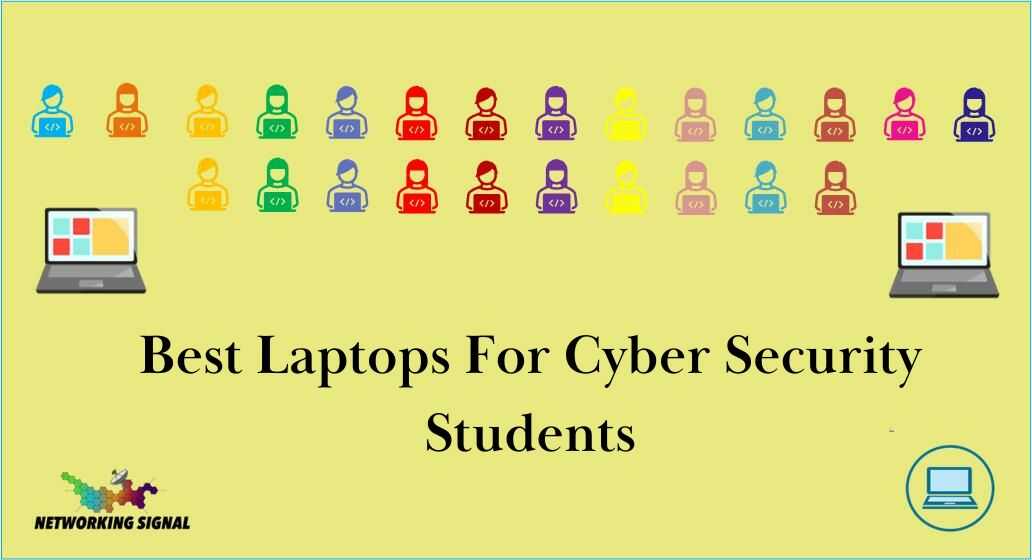
About to start taking a cybersecurity course and these are the minimum requirements for laptops:
Windows or Mac OS
● Memory: 8 GB RAM required (16 GB preferred)
● Disk space: 256 GB free disk space (512 GB preferred).
● Processor: Intel i5 or i7 8th gen or newer processor or AMD Ryzen 5 or 7.
● Webcam and microphone are required for online classes.
● Both PCs and Macs require full administrator (“root”) privileges to operating systems and
software.
It also specifies that MacBook Pros cannot have the M1 or M2, I am a Mac user. What are your thoughts on the Asus ProArt StudioBook 16 OLED W7600Z3A 16″ 4K UHD Notebook Computer, Intel Core i9-12900H 2.5GHz, 32GB RAM, 2TB SSD, NVIDIA RTX A3000 12GB, Windows 11 Pro unit?
Would this meet the requirements needed for the course? Also, are there any MacBook Pro models that would work that do not have the M1 or M2?
Thank you
This is an amazing for Cyber Security Course because in it every specs is up to date.
This is an informative and helpful blog post for cyber security students looking to purchase a laptop that meets their needs. It’s great to see the latest models and specifications being discussed, as well as the importance of considering budget and personal preferences when making a decision. Thanks for sharing!